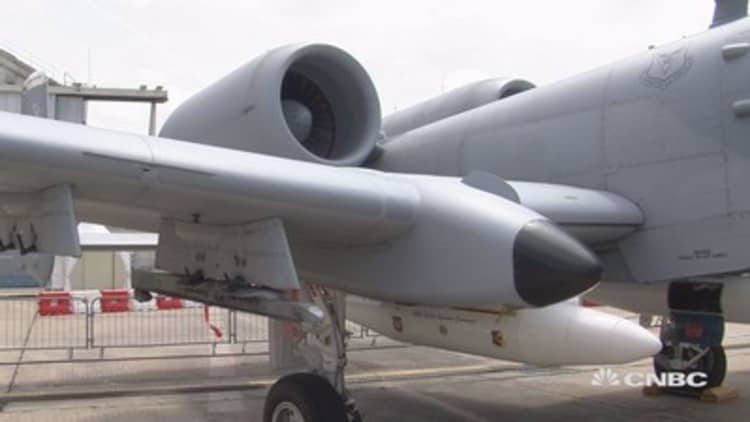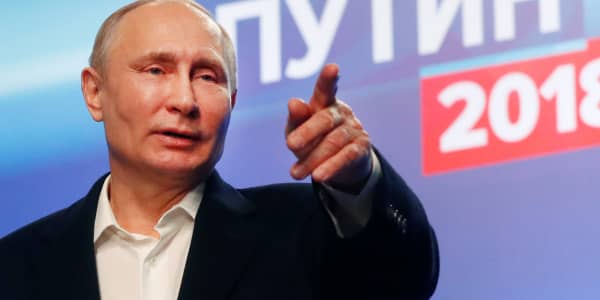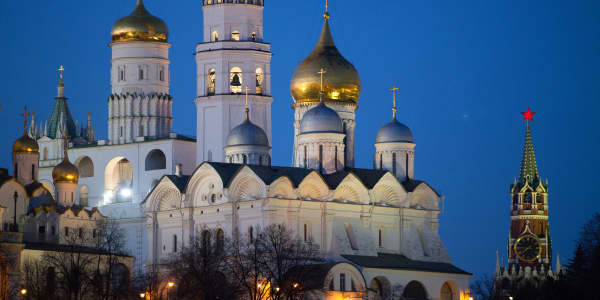U.S. Secretary of State John Kerry said that Russia's plan to buy more intercontinental ballistic missiles was concerning and could herald a return to the international hostility of the "Cold War."
Speaking at a military and arms fair on Tuesday, Russia President Vladimir Putin announced the addition of 40 intercontinental ballistic missiles which, he said, were able to overcome "even the most technically advanced anti-missile defense systems."
Read MoreRussia warns of 'new military confrontation' in Europe
Kerry and other Western leaders showed their dismay at Putin's statement, however.
"Nobody should hear that kind of announcement from the leader of a powerful country and not be concerned about what the implications are," Kerry said in a teleconference Tuesday.
"Of course it concerns me, we have the START agreement (the nuclear arms reduction treaty between the U.S. and Russia) and we're trying to move in the opposite direction," he said.
Kerry said that, since the 1990s, there had been "enormous cooperation" in the destruction of nuclear weapons that were in the former territories of the Soviet Union.
Read MoreIs Finland really getting ready for war with Russia?
"No one wants to see us step backwards, nobody wants to, I think, go back to a kind of Cold War status," he added.
The Cold War marked a prolonged period of tensions between Russia and the West, from around the end of World War II until 1991, when the Soviet Union collapsed. The term "cold" refers to the fact that hostilities ranged from propaganda, threats and espionage, but stopped short of open warfare.
Relations between Russia and the West thawed in the early '90s when then-Russian President Mikhail Gorbachev introduced a policy of opening up relations with the West, known as "glasnost."
Since Putin came to power in 2000, however, relations have deteriorated. They reached a low point last year when international sanctions were placed on Russia for its annexation of Crimea and role in the pro-Russian uprising in east Ukraine, although it denies involvement.
News that Russia now intends to buy more missiles is seen as a direct response to reports that the U.S. was willing to store military equipment, including battle tanks and artillery systems, in allied eastern European countries that are members of NATO (the West's military alliance organization).
Jens Stoltenberg, secretary-general of NATO, said that Putin's statement was one reason why the international military alliance was upping its deterrence measures. Kerry, meanwhile, said the announcement "could well be posturing with respect to negotiations because of their concerns about military moves being made by NATO itself."

Amid an uptick in violence in east Ukraine over recent weeks -- showing the fragility of a ceasefire between Russia and Ukraine, known as the Minsk agreement -- Kerry also warned that more sanctions could come.
"In the absence of a reduction of hostilities and in the absence of further progress in the implementation (of the Minsk agreement), EU are going to be united in the rollover of the current level of sanctions certainly and whether more is coming is dependent on the ground," he said.
"If President Putin continues to play a double game and continues to allow the separatists to press forward than we obviously have a very different challenge ahead of us."
- By CNBC's Holly Ellyatt, follow her on Twitter @HollyEllyatt. Follow us on Twitter: @CNBCWorld





